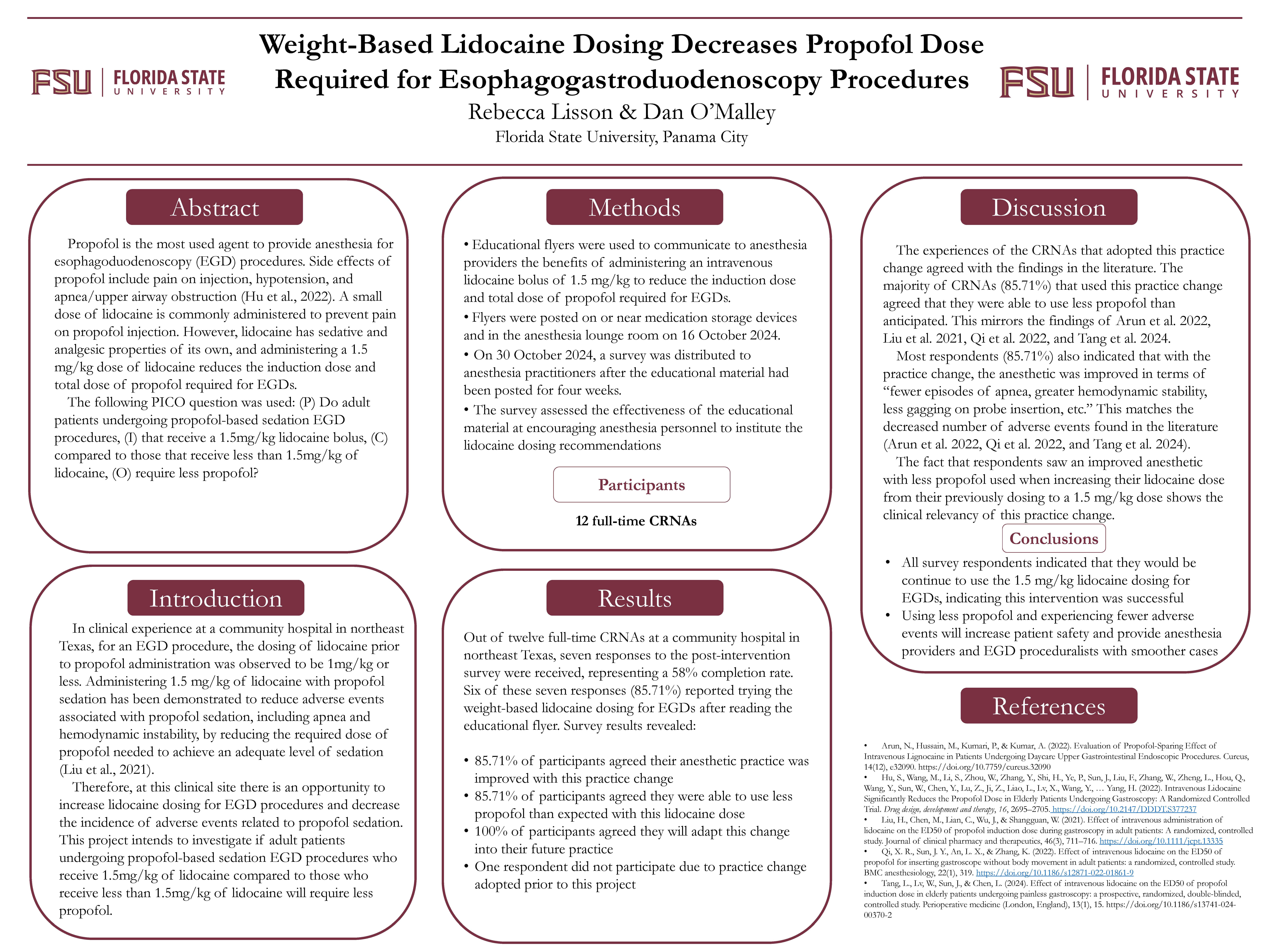Research Symposium Program - Individual Details
5th annual Undergraduate Research Symposium, April 17, 2025
Daniel O'Malley https://pc.fsu.edu/student-research/symposium/symposium-program-2025/dnap

BIO
Dan O'Malley and Becca Lisson are both students in the 2025 Doctor of Nurse Anesthesia Practice program. Both students completed their clinical training in South Florida where they became interested in the optimal lidocaine dosing strategy for EGD procedures after seeing variations in practice between clinical sites and among different practitioners.
Weight-Based Lidocaine Dosing Decreases Propofol Dose Required for Esophagogastroduodenoscopy Procedures
Authors: Daniel O'Malley, Gerard HoganStudent Major: Nurse Anesthesia
Mentor: Gerard Hogan
Mentor's Department: Nurse Anesthesia Mentor's College: College of Applied Sciences Co-Presenters: Rebecca Lisson
Abstract
Propofol is the most used agent to provide anesthesia for esophagoduodenoscopy (EGD) procedures. Side effects of propofol include pain on injection, hypotension, and apnea/upper airway obstruction (Hu et al., 2022). A small dose of lidocaine is commonly administered to prevent pain on propofol injection. However, lidocaine has sedative and analgesic properties of its own, and administering a 1.5 mg/kg dose of lidocaine reduces the induction dose and total dose of propofol required for EGDs.
The following PICO question was used: (P) Do adult patients undergoing propofol-based sedation EGD procedures, (I) that receive a 1.5mg/kg lidocaine bolus, (C) compared to those that receive less than 1.5mg/kg of lidocaine, (O) require less propofol?

Keywords: Lidocaine anesthesia esophagogastroduodenoscopy

